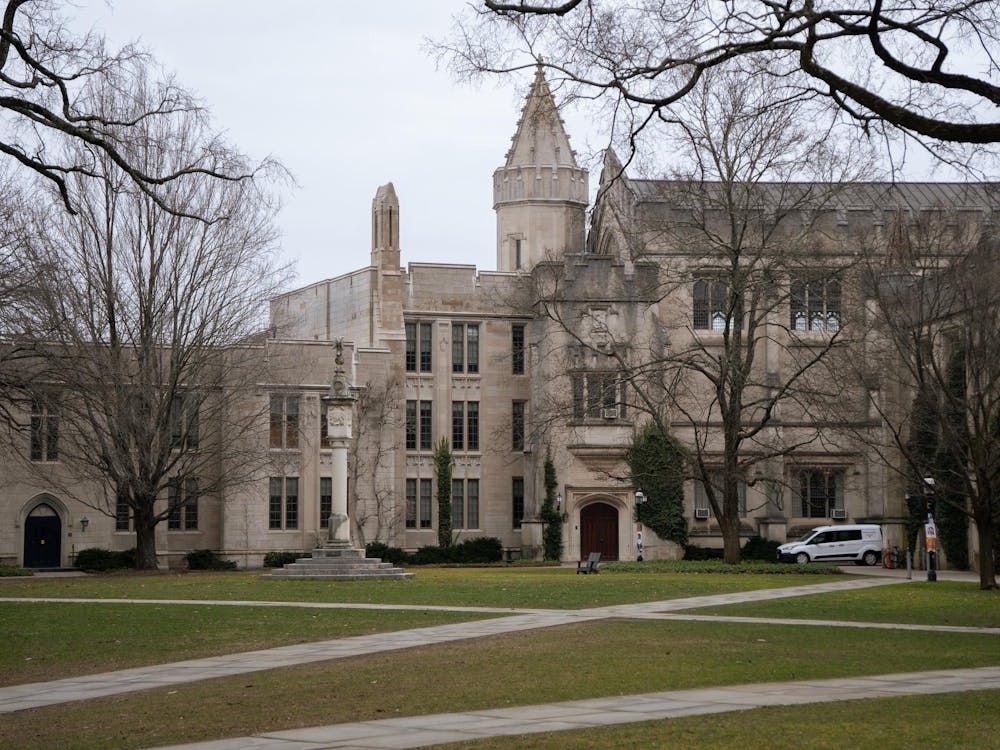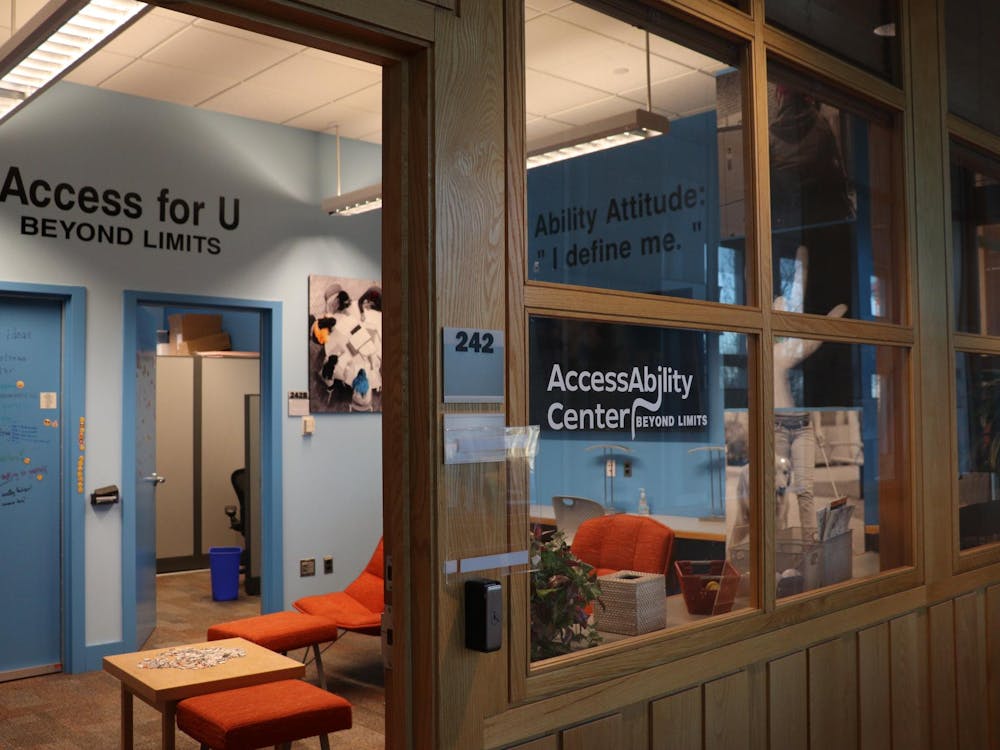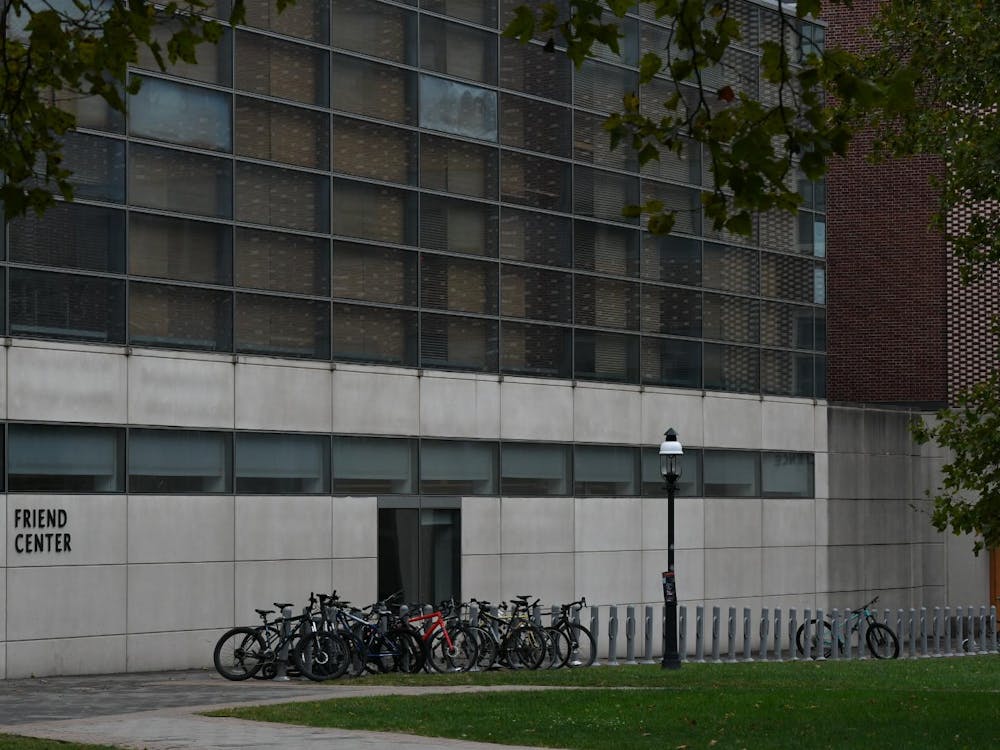Colleges and universities nationwide have “betrayed” victims of rape and sexual assault by failing to punish perpetrators of rape, forensic scientist David Lisak said in a lecture at the University on Friday. He advocated a greater emphasis on bystander intervention than is seen in most college sexual assault prevention programs.
Speaking to an audience of mostly University administrative officials who were nearly all female, Lisak emphasized the role of the institutional power structure in confronting the issue of sexual assault on campus. A comprehensive program initiated and supported by the University administration would be the most effective way to prevent sexual assault, he argued.
“Princeton is responsible for Princeton’s community,” Lisak said. Currently a professor at the University of Massachusetts, Lisak has worked with the United States Air Force and various universities on sexual assault prevention and policy.
To give context on the incidence of sexual assault on college campuses, Lisak discussed the methodology of a study he conducted on male students at Duke University. In his study, potential rapists were first identified by questionnaires which avoided using direct labels like rape or sexual assault to overcome subject reticence.
“We found people will respond to these questions amazingly openly,” Lisak said. “The basic reason is because these guys don’t see this as rape.”
In a video dramatizing an interview he conducted for the study, a Duke student and fraternity member described how he and his frat brothers identified targets, who were typically innocent, attractive freshman girls, then provided a graphic account of how he continued to provide his target with drinks before bringing her to a prepared room where he had sex with her despite her protests and “wiggling.” He noted that the rapists often had a delusion that their victims had “done this a thousand times before.”
Lisak has determined that this behavior only represented a subculture of Duke’s campus and even of its fraternity community.
5 percent of college-age males admit to actions psychologists judge to be rape. 3 percent of those are serial rapists, according to data cited by Lisak. He claimed that student outreach programs emphasizing the importance of consent will not stop these serial rapists because they do not address the various psychological factors at play. This includes the online “Unless There’s Consent” program, implemented for the Class of 2017 this fall, he explained in an interview with The Daily Princetonian.
“There is no way that we are going to realistically prevent them somehow through education from committing sexual assault. That’s why we have to have mechanisms to identify who these people are and mechanisms to get them out of the community,” he said, noting that many institutions typically punish sexual assault with suspension.
“The idea that you adjudicate someone responsible for sexual assault and suspend them is, to me, ludicrous. If someone is responsible for sexual assault, they need to be expelled from the community permanently. Period,” Lisak said.
Lisak advocated the use of a multilayered prevention program emphasizing bystander intervention; he cited education programs about driving under the influence of alcohol as an example. In the last 25 years of alcohol education, social norms have been changed regarding drinking and driving intervention, Lisak pointed out. He thinks that a similar approach to bystander education and intervention could be equally effective over time.

“We want people to feel obligated to step in,” he said, adding that these programs can also contribute to general community well-being and should be seen as essential to educating responsible citizens.
University psychology professor Elizabeth Levy Paluck and psychology department chair Deborah Prentice also took the stage to offer insights on how to deal with instances of sexual aggression.
“Even though this guy is a very particular kind of individual — and it sounds like it is particular kinds of individuals who are serial rapists — they are supported by the community, wittingly and unwittingly,” Prentice said. In order for a rapist to normalize his behavior, Prentice explained, he needs people around him to support it or at least not flag it as inappropriate. She said that this “silent majority” should be the critical targets of intervention strategies, saying that, if some challenged inappropriate behavior, others in the majority would be more open about expressing their discomfort.
Paluck described particular efforts that have been made to change social norms and behavior in high-school and middle-school contexts by targeting certain influential students, whom she identified as students with a lot of connections, such as those who were clique leaders of any tightly knit social or extracurricular group. The targeted students were then asked to spread the message throughout their networks that certain kinds of behavior were not appropriate. Paluck said this strategy was so successful that it was also expanded to middle schools.
Paluck and Prentice both noted that influential individuals could be identified from a number of different groups within Princeton, including residential colleges and eating clubs. Paluck also noted that the Princeton identity itself was a very strong one.
“One thing that’s special about Princeton is everyone feels identified to Princeton, so you have a real shot to identify campus-wide norms,” Prentice said.
Lisak had previously spoken at Princeton in September 2012.








